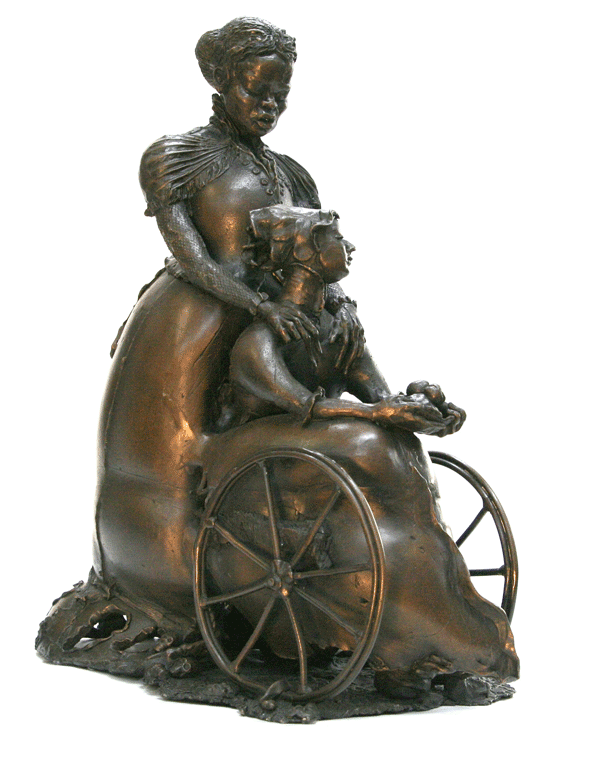In the Chinaberry Garden
Cast Bronze, 2005
18" X 12" X 22"
Priscilla Armstrong, accustomed to lowering her gaze, looks down upon her prematurely gray-haired mistress who has become her life-long charge.
We see both women wheeled as one floating as if on air through the ramshackle, snake-infested chinaberry garden they both played in as children before the War. The Federals had laid waste to most of the major cities in the South, thus uprooting its human inhabitants, both slaves and slave owners.
Priscilla and Shirley Ann remained like prisoners chained together by some strange force. What caused Priscilla to choose to stay is not clear-but traditions handed down through generations on both sides of the ocean tell that in each family unit there is only one that is chosen as a strong caregiver. The two women, it was said, could have been half sisters. Be that as it may, Priscilla was totally dedicated to Shirley Ann's care, sacrificing her own freedom and future.
The slave community, which was generally very wise in these matters, discovered at once that the baby had Negro blood. News had reached the plantation that Ole Massa was on his way home. Missy fearing for her life, paid the Irish overseer to perform the common practice of destroying unwanted mixed-blood babies by feeding them to the hogs or taking them to the fields and leaving them. The overseer chose to take the baby miles from the plantation and abandon the small man-child in an unused cotton field. When the Master arrived, Missy greeted him with loving arms, and all was well in their household.
Jolly's conscience and terrible dreams drove him to search for the child, which he rightly suspected had been taken to the old cotton field, where he discovered the baby lying very quietly, with eyes half shut. Jolly nursed him on mare's milk that he had brought along. He remained there for two days, caring for the child and fashioning a small reed boat. Jolly remembered the Bible stories from the Old Testament that Ole Massa had read to him. And he decided he would send his son downriver where he hoped someone from the town would find the boy and care for him. The events fit the story of Moses so well that Jolly named the little boy Moses.
